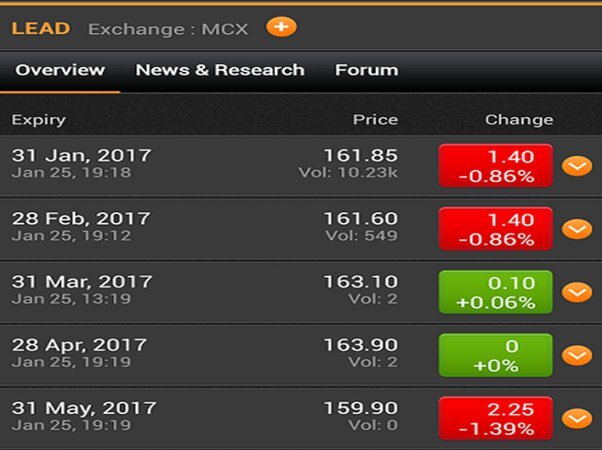Description
Energy commodities are crucial components of global markets, influencing economies, industrial activities, and investment strategies. On India’s Multi Commodity Exchange (MCX), energy commodities such as crude oil, natural gas, and heating oil are actively traded, offering opportunities for profit but requiring a nuanced understanding of market dynamics. MCX Energy Tips provides traders and investors with expert insights, real-time analysis, and actionable strategies to effectively navigate complex energy markets, optimize trading decisions, and manage risk.
Critical Components of MCX Energy Tips
- Detailed Market Analysis: Understanding the broader market context is essential for successful trading in energy commodities. MCX Energy Tips are based on thorough market analysis, including global and domestic economic indicators, geopolitical events, and energy-specific factors. This analysis covers oil production levels, OPEC policies, natural gas storage reports, and international energy demand trends. By evaluating these factors, traders gain a comprehensive view of the market environment and its impact on energy prices.
- Fundamental Analysis of Energy Commodities: Energy markets are influenced by various essential factors, including supply and demand dynamics, production levels, inventory reports, and geopolitical developments. MCX Energy Tips include detailed fundamental analysis of crucial energy commodities like crude oil and natural gas. This analysis involves studying factors such as crude oil inventory levels, production forecasts, refinery utilization rates, and natural gas storage data. By understanding these fundamentals, traders can anticipate price movements and identify trading opportunities.
- Technical Analysis and Charting Tools: Technical analysis is vital for identifying trends, support and resistance levels, and potential reversal points in energy trading. MCX Energy Tips incorporate advanced technical analysis techniques, including Moving Averages, Bollinger Bands, Fibonacci Retracements, Relative Strength Index (RSI), MACD (Moving Average Convergence Divergence), and candlestick patterns. Experts provide actionable insights on optimal entry and exit points, stop-loss levels, and profit targets for energy commodities by analyzing historical price data and current price action.
- Customized Trading Strategies for Energy Markets: The energy markets can exhibit different behaviors depending on market conditions, such as trending, range-bound, or volatile phases. MCX Energy Tips offers customized trading strategies tailored to these scenarios. For example, traders might use a trend-following strategy in a trending market, such as moving average crossovers or momentum trading. In contrast, strategies like range trading or mean reversion may be more effective in a range-bound market. This adaptability ensures that traders have effective strategies for varying market environments.
- Risk Management and Position Sizing: Risk management is crucial in energy trading due to the volatility and leverage typically involved. MCX Energy Tips emphasize prudent risk management techniques, including proper position sizing, stop-loss placement, and maintaining favorable risk-reward ratios. Traders receive guidance on how much capital to risk per trade, how to set protective stops to limit potential losses, and how to diversify their positions to manage overall risk. This disciplined approach helps protect capital and enhance long-term trading success.
- Real-Time Trade Alerts and Updates: The energy markets can be highly responsive to news events, economic data releases, and changes in market sentiment. MCX Energy Tips include real-time trade alerts that provide specific entry and exit points, stop-loss levels, and profit targets based on market conditions. These alerts help traders capitalize on emerging opportunities or adjust their positions quickly in response to market developments.
- Sentiment Analysis and Market Psychology: Understanding market sentiment and trader psychology is essential for navigating the volatile energy markets. MCX Energy Tips incorporates sentiment analysis, which assesses the prevailing mood of market participants—whether bullish, bearish, or neutral. This is achieved by analyzing trading volumes, open interest, and news flow. By understanding market sentiment, traders can better anticipate price movements and align their strategies with broader market trends.
- Hedging Strategies for Energy Commodities: Hedging is essential for managing risk in the energy markets. MCX Energy Tips often include hedging strategies for traders and investors to protect against adverse price movements. For example, traders may use futures contracts, options, or spread strategies to hedge their exposure to crude oil or natural gas prices, thereby reducing potential losses while retaining upside potential. These strategies are tailored to the market participant’s specific risk appetite and objectives.
- Seasonal Trends and Historical Price Patterns: Energy commodities often exhibit seasonal trends and historical price patterns that can impact their prices. MCX Energy Tips provide insights into these seasonal trends, such as changes in energy demand during different seasons, weather-related impacts, and historical price cycles. Understanding these patterns helps traders anticipate potential price movements and adjust their trading strategies accordingly.
- Advanced Trading Platforms and Tools: To effectively implement MCX Energy Tips, traders need access to advanced trading platforms that offer real-time data, sophisticated charting tools, and automated trading signals. Many services provide access to proprietary trading platforms, mobile apps, and comprehensive economic calendars to help traders analyze the market, execute trades, and monitor performance seamlessly. These tools enhance trading efficiency and give traders the necessary resources to succeed.
- Educational Resources for Continuous Learning: The energy markets are dynamic and require continuous learning and adaptation. Many MCX Energy Tips services offer educational resources, including webinars, tutorials, articles, and courses, to help traders deepen their understanding of energy trading strategies, technical and fundamental analysis, and risk management techniques. This continuous learning approach helps traders build confidence, improve their trading skills, and stay ahead of market trends.





